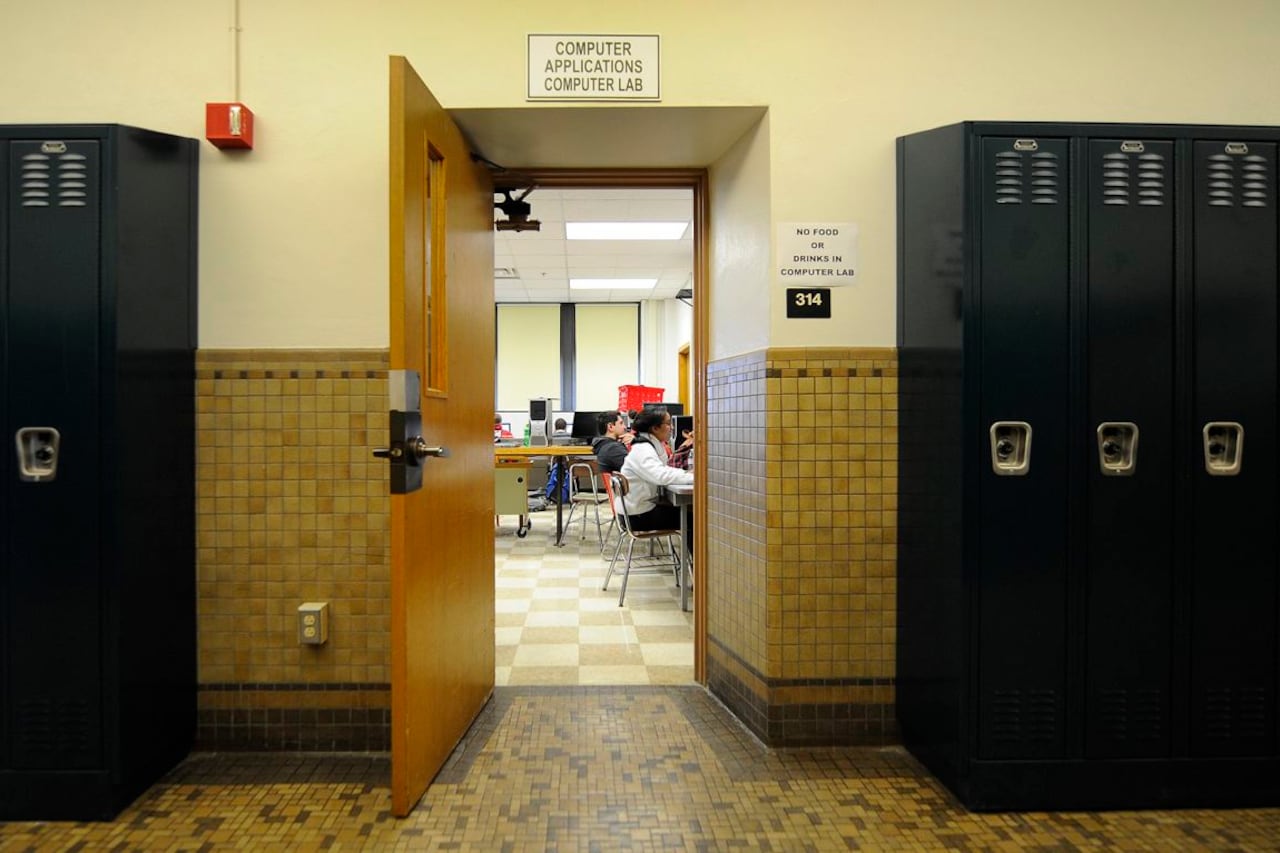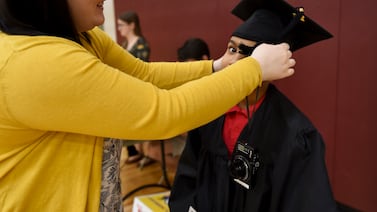As teachers in some other states line up for the COVID-19 vaccine, Indiana educators wonder when their turn will come.
It’s unclear when Indiana teachers will be eligible for the vaccine, but they will likely have to wait several weeks until Hoosiers age 60 and older and people with medical conditions receive their shots — putting them further back in line than they hoped to be.
“We are told that we are essential and important, and yet we are not on any list. We aren’t told what our plans are,” said Franklin Township elementary school teacher Sheila Sego.
Early on, Indiana health officials said teachers and other essential workers could be eligible for the vaccine after health care workers and nursing home residents. That would have been in line with federal recommendations that consider teachers to be “frontline essential workers.”
But when the state launched its vaccination plan last week, health officials decided to use its limited doses to first inoculate those at highest risk of hospitalization or death due to COVID-19.
“Our goal is to reduce deaths and hospitalizations, and that makes this the right approach,” state health commissioner Dr. Kristina Box said Wednesday. “Our system is working, and we are going to stick with it.”
Gov. Eric Holcomb said the strategy for prioritizing the most at-risk people for the vaccine “hasn’t changed.” When the vaccine could become more widely available depends heavily on how many doses the state receives each week. The state does not have enough vaccines for everyone who wants it, but state health officials said they are working to expand efforts as quickly as possible.
About 220,000 Hoosiers have received the first dose of the COVID-19, health officials said. Indiana officials haven’t outlined plans beyond vaccinating older Hoosiers, which could take until February depending on vaccine availability and demand. Last week, health officials said the state could move next to those with medical conditions that put them at higher risk.
The Indiana State Teachers Association called last week for the state to prioritize teachers for the vaccine in order to keep schools open as coronavirus case numbers remain high. The state pushed to open schools for in-person learning at the beginning of the year, but many schools have dealt with periodic closures due to high community spread, outbreaks or widespread exposure to positive cases in schools, and staffing shortages while teachers are sick or quarantined.
“For months, teachers have put their lives at risk to ensure Hoosier children receive a quality education during the pandemic — all while being told they would be prioritized when the moment came for a vaccine,” ISTA President Keith Gambill said in a statement.
To reopen classrooms, many schools have required students and teachers to wear masks, limited visitors, spaced desks apart, and divided students into shifts to reduce the number of people in classrooms.
Sego points out that most teachers don’t have the option of working from home, and despite the precautions, many often spend hours each day in groups of 25 to 35 students. Social distancing isn’t always possible, and students don’t always wear their masks properly.
The vaccine would “give some peace of mind that they are safe at their place of employment,” Sego said. Sego had COVID-19 in the fall but does not know where she contracted the virus.
Indiana schools have reported more than 30,000 COVID-19 cases among students, teachers, and staff since the start of the school year, though the data is likely incomplete because not all schools are contributing numbers and cases can be difficult to report.
Some Indiana teachers in Vincennes and Evansville received the vaccine early, jumping to claim open appointments or leftover doses.
It’s not immediately clear how vaccines could change school policies on quarantining or other precautions.
Indianapolis Public Schools teacher Nathan Sopke said he’s frustrated that local and state health officials aren’t saying when teachers could be vaccinated.
“There’s not an excuse for this,” he said. “It just shows the lack of compassion toward educators.”
Sopke said he would get the vaccine as soon as it’s available. He’s seen how serious the disease can be after having COVID-19 and losing his dad to complications related to the coronavirus.
Teachers have worked to protect students’ health and their own while adapting to rapid changes in both in-person and remote instruction, Sopke said. It’s critical to get all students safely back into classrooms — especially in his district and others that serve mostly students from low-income families who may be at risk of falling behind their peers.
Vaccinating teachers would be the first step, he said.
“Teachers are going to die, and then people are going to say, well, maybe they should have got the vaccine,” Sopke said.






